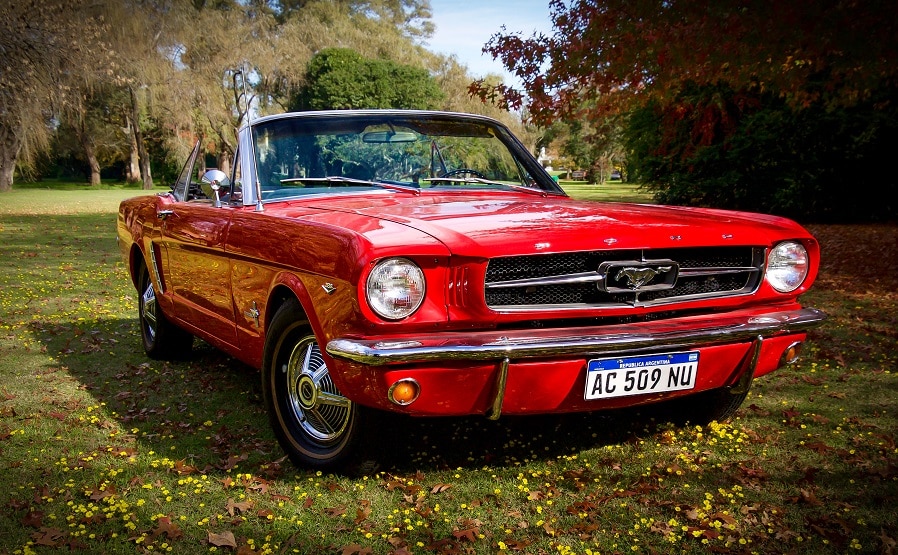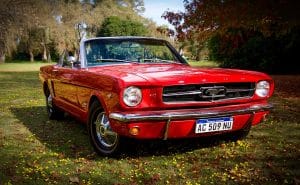Are you ready to add your first classic car to your garage? Buying a classic car is an exciting experience but can also be daunting for first-time buyers. However, you can make the process much more manageable with research and preparation. This comprehensive guide will give you tips to make buying your first classic car stress-free. From understanding the different types of classic cars to evaluating the condition of a vehicle, you’ll be well-prepared to find the perfect car to add to your collection. With the proper knowledge and a bit of patience, you’ll be able to find a classic vehicle that meets your needs and fits your budget.
Understanding the Different Types of Classic Cars
There is not a definitive answer to whether a vehicle is a classic, vintage, or antique, rather there are some generally accepted time frames.
- Classic vehicles are generally 20-25 years old or older
- Antiques are usually more than 45 years old
- Vintage vehicles were built between 1919 and 1930
People often use these terms interchangeably to describe older-looking vehicles, but insurance companies and classic car collectors have their own definitions for what makes a vehicle a classic, vintage, antique or historical. The type of classic car that you choose will largely depend on your specific needs and preferences.
There are many different types of classic cars, including:
Sports Cars: Sports cars are stylish two-door cars manufactured in the mid-20th century. Sports cars are some of the most iconic classic cars ever made. Some of the most famous American-made sports car models include the Ford Mustang and Chevrolet Corvette. Sports cars are known for their sleek design and high-performance engines.
Luxury Cars: Luxury cars provide a luxurious driving experience. Luxury cars typically have powerful engines and an upscale design. Some of the most iconic luxury car brands are Mercedes, BMW, and Cadillac.
Muscle Cars: Muscle cars are a type of sports car. They are often large and have powerful engines. Vehicle historians report that the 1949 Oldsmobile Rocket 88 was the first of the muscle cars. Racing enthusiasts modified muscle cars for drag racing and NASCAR racing.
Classic SUVs and Minivans: Classic SUVs and minivans were manufactured in the 1980s and 1990s. Some of the most iconic SUVs include the Ford Explorer and Jeep Cherokee. Minivans are a type of SUV designed to carry passengers.
Classic Pickup Trucks: Pickup trucks are another iconic vehicle manufactured in the 1940s and 50s and later years. Pickup trucks are designed for carrying goods and heavy equipment. Some of the most famous pickup truck manufacturers include Ford, Chevrolet, and Toyota.
Mini Cars: Mini is a small, distinctively British vehicle produced starting in the late 1950s, and it is a favorite of many collectors. Many minis were used for racing and demolition derbies.
Setting a Budget for Your Classic Car
The first step in buying your classic car is setting a budget. Before you start looking for vehicles, you’ll want to determine how much you want to spend. Once you have a budget, you can start looking for cars that fit your price range. This way, you’ll avoid getting caught up in the excitement of purchasing a classic car and overspending. It would be best to keep a few things in mind when setting a budget for your first classic car.
Remember to account for maintenance and upkeep. New vehicles have a warranty to cover the cost of repair and maintenance. However, classic cars don’t have that support. Therefore, you’ll have to cover the costs of all repairs and maintenance.
Next, ensure that you account for the cost of insuring your car. Classic cars are more expensive to insure than modern cars, so expect your insurance costs to be higher. Finally, you’ll want to factor in the cost of licensing and registering your vehicle. While you can still register your classic car with the Department of Motor Vehicles (DMV), it will be more expensive than registering a modern vehicle. Combining all these expenses, you’ll want to budget between $1,000 – $2,000 per year for maintenance and upkeep.
Evaluating the Condition of the Vehicle
Buying a used car is never 100% risk-free, but you can reduce the risk of buying a lemon by thoroughly evaluating the condition of a potential purchase. There are a few things you’ll want to look for when assessing the condition of a potential classic car.
You’ll want to check the overall condition of the exterior and interior of the car. You can learn a lot about the car’s condition by looking at the paint job. If the paint is faded or chipping, the car has likely been driven a lot and has high mileage.
Check the car’s interior for wear and tear. If there are stains or rips in the seats, the car has been used as a daily driver. Next, look for any signs of rust. Rust is a common problem with older vehicles and can be very costly to repair. Finally, you’ll want to look closely at the car’s undercarriage. Look for signs of rust or corrosion and ensure all the fluids are in good condition. You can hire a mechanic or car expert to examine the car. They’ll catch any issues that you might have missed.
Choosing the Right Seller
The best place to buy your first classic car will depend on a few factors, including a budget, type of car, and seller reputation. You’ll want to focus on finding a seller with a good reputation. You can check online reviews and talk with friends and family to find reputable classic car sellers near you. You’ll also want to consider how much you’re paying for the car. Some dealers will sell their classic cars for a premium price. While these cars may be in excellent condition, they’re often overpriced. If you’re looking to buy your first classic car on a budget, it may be a good idea to buy from a private seller. Private sellers can often offer vehicles at a lower price than a dealer because they don’t have the overhead of a dealership.
Final thoughts
Buying your first classic vehicle can be a rewarding experience when you take the time to do your research, establish a budget and get input from a professional mechanic who has experience repairing and maintaining the type of car you’re looking to buy. In part II of this series, we will continue with the process of buying your first classic car. We will cover the importance of taking a test drive, reviewing the vehicle history report, negotiating the price, financing, and more.
Before you buy your first classic or vintage car, you’ll want to find a mechanic you can trust and who has the experience to maintain and repair it. At Wilson Auto Repair you can get an estimate for your classic American car and truck repairs and restoration. We’ve been repairing classic cars since 1980, and we’ve worked on more than 68,000 vehicles. Contact us with questions about your classic vehicle today.


